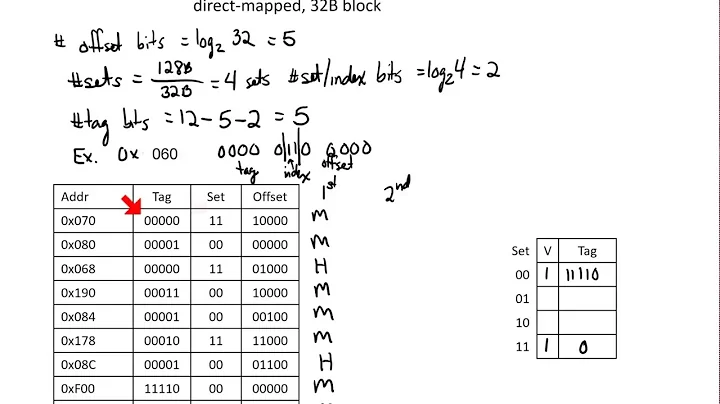How can I improve nscd's cache hit rate?
Solution 1
What part of your webserver is even doing DNS lookups? Most webserver configurations explicitly disable reverse DNS lookup of each incoming user, for speed (because DNS is slow in general).
As Patrick notes, nscd is doing the right thing and respecting the positive TTL values. Yes, you could override it (unbound would let you do this easily, just modify server.cache-min-ttl, has warnings about increasing it beyond 1 hour for the same reasons). HOWEVER, your queries are probably mostly rDNS, which will tend to have longer TTLs in general.
Additionally, since your maximum number of cached values is so low, I'd like to note that you're hardly getting any traffic.
If you do care about where you users repeat from that often, I'd suggest logging it outside nscd, and not worrying about it anymore.
Edit (2013/12//09):
nscd -g hosts stats from dev.gentoo.org (no blocks in comments):
nscd configuration:
4h 8m 43s server runtime
hosts cache:
yes cache is enabled
no cache is persistent
no cache is shared
422 suggested size
1108744 total data pool size
966632 used data pool size
600 seconds time to live for positive entries
20 seconds time to live for negative entries
67878 cache hits on positive entries
2479 cache hits on negative entries
9464 cache misses on positive entries
4276 cache misses on negative entries
83% cache hit rate
6951 current number of cached values
7641 maximum number of cached values
33 maximum chain length searched
1 number of delays on rdlock
0 number of delays on wrlock
0 memory allocations failed
yes check /etc/hosts for changes
Solution 2
This parameter:
yes cache is shared
allows applications to root around in nscd's cache, and such activity is not logged. This is the expected and most efficient behavior.
Set that to NO and you will see your hit rate rise dramatically, but it is somewhat slower.
Solution 3
It may be a bit off-topic but instead of using nscd you can switch to sssd (which I consider its successor).
I'm using it on SUSE Linux Enterprise Server 11.3 (fully supported) and I'm glad that I did the switch. It has many more and finer grained configuration options than nscd and also has capabilities that go far beyond what nscd can achieve.
At least I guess it is worth a look: https://fedorahosted.org/sssd/
Solution 4
nscd is respecting the upstream TTL values.
If the DNS server for google.com says the TTL for the A record of google.com is 10 seconds, and you have a positive-time-to-live of 36000, the record will still expire in 10 seconds.
Related videos on Youtube
Bratchley
Updated on September 18, 2022Comments
-
 Bratchley almost 2 years
Bratchley almost 2 yearsMy Goal: Let nscd maintain a fairly large DNS cache in excess memory since I have it available.
Description:
I have a webserver that has a broadly dispersed but high-repeat user base. It has plenty of memory so I thought I'd improve response time by caching lookups but according to
nscd -gI'm only at a 6% cache hit rate (meaningnscdis most likely introducing more latency saving to the cache or looking through the cache for an entry it will never find, than it's preventing by going out to the network):hosts cache: yes cache is enabled yes cache is persistent yes cache is shared 211 suggested size 216064 total data pool size 2328 used data pool size 36000 seconds time to live for positive entries 20 seconds time to live for negative entries 4455 cache hits on positive entries 0 cache hits on negative entries 17357 cache misses on positive entries 42348 cache misses on negative entries 6% cache hit rate 17 current number of cached values 40 maximum number of cached values 3 maximum chain length searched 0 number of delays on rdlock 0 number of delays on wrlock 0 memory allocations failed yes check /etc/hosts for changesProbably a large contributor to the 6% hit rate is the fact that apparently it's only cached 17 entries. Doing a
strings /var/db/nscd/hostsshows that the host cache entries it has created are mostly for machines on our internal network. It's good to have these cached since the daily re-publish of the website is likely sped up but my goal is to speed up end user experience without making any real configuration changes.This is the relevant segment of
nscd.conf:threads 10 server-user nscd debug-level 0 paranoia no [.....snip......] enable-cache hosts yes positive-time-to-live hosts 36000 negative-time-to-live hosts 20 suggested-size hosts 10657 check-files hosts yes persistent hosts yes shared hosts yes max-db-size hosts 33554432Basically, I need help understanding how my host cache can be so small even though I've set the positive TTL's on the host cache to be incredibly high. I'm sure it's the small number of actual cached entries that is causing the hit rate to be so low.
I'm assuming since the hit rate is 6% but my positive TTL is fairly large, that means my current workload is performing DNS host lookups, but they're just not being save. I have no idea why these aren't being saved nor what to check next. What I had expected would be a fairly large DNS cache now.
Even if the hit rate stayed small (i.e: clients weren't repeating as often as I thought) I'd still expect those DNS lookups to be cached but looking at the "current number of cached values" that doesn't appear to be happening either.
-
Nils over 10 yearsIs there any reason why you want to lookup clients in DNS?
-
-
 Bratchley over 10 yearsIs there a way to override this behavior?
Bratchley over 10 yearsIs there a way to override this behavior? -
Totor over 10 yearsHere is an ugly way: you could filter the incoming DNS answer packet with
iptables, send it to a userspace program (NFQUEUEtarget) which will then counterfeit it to change the TTL. -
phemmer over 10 yearsI would not recommend this even if it were possible. One scenario: When servers are brought down for maintenance, they are removed from DNS. The admins will then wait for the DNS records to expire before shutting the server itself down. By overriding the TTL you'll be sending traffic to a server that could be shut down.
-
 Bratchley over 10 yearsThe DNS lookups are being done so that upper management can see DNS names in their reports (generated from the log files). I suppose I could set up BIND to do this, but my question is how to manage
Bratchley over 10 yearsThe DNS lookups are being done so that upper management can see DNS names in their reports (generated from the log files). I suppose I could set up BIND to do this, but my question is how to managenscdsince that's more generally useful especially for stuff like user ID's and groups. -
 Bratchley over 10 yearsAlso, I realize the
Bratchley over 10 yearsAlso, I realize themaximum number of cached valuesis low, but I still think that with a hit rate of 6% when I set the TTL to 10 hours would result in a larger cache than 17 cached host values. If there's a way to get nscd to hold onto the records longer, that's preferable and would minimize the impact of the reverse DNS. -
robbat2 over 10 years@JoelDavis just using BIND/unbound isn't going to increase the hit rate directly. I do see a related problem for you if you're doing the rDNS lookup later from logfiles: there is no gaurentee that the rDNS points to the same entry now that it did when the event happened.
-
 Bratchley over 10 yearsThis is on RHEL5 but when we upgrade the server (probably to RHEL7) I can look into it. It's interesting for a lot of reasons. Can SSSD cache UID's in general or does it just do authentication and DNS caching?
Bratchley over 10 yearsThis is on RHEL5 but when we upgrade the server (probably to RHEL7) I can look into it. It's interesting for a lot of reasons. Can SSSD cache UID's in general or does it just do authentication and DNS caching? -
 Bratchley over 10 yearsMarking this as the answer since I think this is as close to an answer that the question makes possible.
Bratchley over 10 yearsMarking this as the answer since I think this is as close to an answer that the question makes possible. -
 Bratchley over 10 yearsChecked in
Bratchley over 10 yearsChecked in#sssdon FreeNode and one of the devs said that they still recommend using something else for DNS caching and mentioned theunboundandnscdoptions. They did say, though, that it is designed to cache user and group information. -
robbat2 over 10 yearsThere is unscd as well out there; but runs into the same root problem




